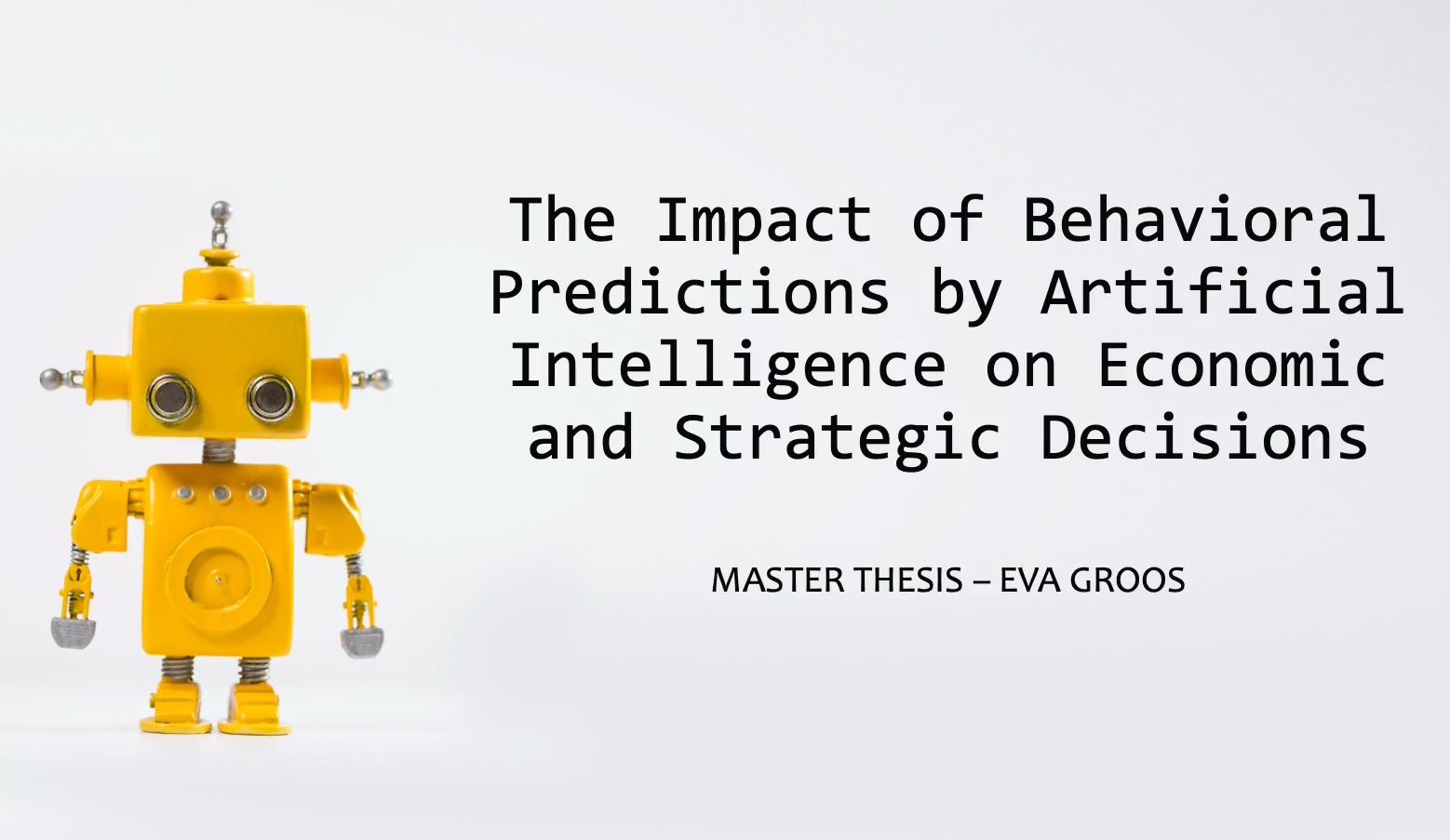Preisträgerinnen und Preisträger 2024
Tobias Carlé: Collateralized Loan Obligations and the Effect of ESG Events
Über die Masterarbeit: Collateralized loan obligations (CLOs) are not banks, but neither are they traditional investors. They securitize high-yield loans and trade them on the secondary market. As such, they make a crucial contribution to the functioning of the leveraged loan market and play a central role in corporate refinancing. Despite their central role and the more and more relevant topic of ESG in regular finance, little research has examined how CLOs change their trading behavior in response to climate change. Therefore I examined how CLOs adapt their trading behavior in response to climate-related events. It reveals that ESG events significantly influence CLO managers’ decisions. For the most important events, CLOs tend to buy more loans at lower prices from polluting companies. Furthermore CLOs with large assets under management show the opposite trading behavior than other CLOs for many events.
Eva Groos: The Impact of Behavioral Predictions by Artificial Intelligence on Economic and Strategic Decisions
Über die Masterarbeit: Data-driven predictions by artificial intelligence (AI) are increasingly impacting various aspects of human life. However, little is known about how people react to having their behavior predicted. We investigated whether receiving behavioral predictions from an AI has an impact on human behavior, and whether responses vary when a human overseer is involved in providing the AI-generated predictions. An online experiment was designed and conducted using a custom-built AI tool to predict decisions in a dictator game. The results show that direct AI predictions lead to significantly lower offers and significant downward deviations from predictions. Although further research is needed, this study highlights the importance of considering behavioral responses in AI applications.
Gero Holzheid: Online Optimierung zur Berücksichtigung von unsicherer Nachfrage in Humanitärer Logistik
Über die Masterarbeit: In Krisenszenarien, in denen Teile des Supermarktsystems zusammenbrechen, muss der Staat aktiv werden und die Versorgung der Bevölkerung mit Grundgütern gewährleisten. Da der Verlauf von Krisensituationen in der Regel schwer vorhergesagt werden kann, bestehen bei der Planung einer solchen Notversorgung häufig große Unsicherheiten bezüglich der zukünftigen Nachfrage nach Hilfsgütern. Im Rahmen dieser Arbeit wird ein Modell zur Online Optimierung entwickelt, durch das eine Mischung unterschiedlicher Typen von Ausgabestellen geplant wird, um reaktiv die Ausfälle von Supermärkten zu kompensieren. Anhand einer Fallstudie zu fiktiven Krisensituationen in Berlin wird der Mehrwert davon untersucht, mit Unsicherheiten behaftete Prognosen bei der Planung der Ausgabestellen zu berücksichtigen.
1-Minütiges Erklärvideo über die Masterarbeit
Krischan Ditsch: Suggesting actions for achieving the urban energy transition – Analysis of European Energy Award Gold winning municipalities
Über die Masterarbeit: As cities & municipalities are responsible for 75% of all CO2 emissions, they play a crucial role in addressing climate change. The result of my work is a tool, enabling the development of an individualized climate action strategy for any municipality with little effort. To develop this strategy for a specific municipality the tool uses city characteristics such as number of inhabitants, climate & others to identify similar municipalities which have already implemented a successful climate action strategy. Based on the climate actions employed in these municipalities a recommendation is derived. Interviews with city officials confirmed that the output provides a starting point for climate actions strategies & contributes to the development of knowledge networks between municipalities.
1-Minütiges Erklärvideo über die Masterarbeit
Lukas Thede: Reducing Human Effort for Training Human-AI Systems
Über die Masterarbeit: Recent research highlights the potential of combining human experts with AI models to surpass individual performance in so-called Human-AI Systems. However, training such systems requires numerous expert annotations, hindering their use in scenarios with changing experts or costly predictions. This thesis proposes utilizing few-shot and semi-supervised learning to learn expert behavior and simulate artificial annotations for unlabeled samples. Both true and simulated expert annotations can then be leveraged to train Human-AI Systems. The evaluation of the proposed approach on public datasets, including real radiologists' predictions, demonstrates its efficacy by reducing expert annotations to six labels per class with a minimal performance drop of less than 2% in the Human-AI Systems.
Maximilian Bree: Pareto Front Approximations and Nonconvex Semivectorial Bilevel Optimization
Über die Masterarbeit: For multiobjective optimization problems, information on the entire Pareto front (PF) can be relevant for the final decision on a single efficient solution. Using a specific scalarization approach, we develop an approach to calculate information on the local behavior of the PF that can be used to find naturally interesting solutions (knee points) for smooth fronts. With the same scalarization method, we introduce an algorithm for globally solving nonconvex semivectorial bilevel problems, where the lower level is a multiobjective problem. The algorithm generates approximation points of the parametric lower-level PF that are used to iteratively tighten relaxations of the original problem. Under some assumptions this leads to converging upper and lower bounds for the upper optimal value.
1-Minütiges Erklärvideo über die Masterarbeit
Stefan Schwarze: Solution Methods for Discrete Nash Equilibrium Problems
Über die Masterarbeit: We study non-cooperative n-person games, where each player aims to maximize her payoff given the other players' strategies. Applied to competing firms in a market, the equilibrium points are interesting for the firms as well as for a central authority that may pose rules. Up to now, most algorithmic approaches for the computation of Nash equilibria require continuous strategy sets for all players. However, integer decisions appear in many real-world applications. We present a branch-and-prune procedure for discrete Nash equilibrium problems with a convex description of each player’s strategy set. The derived pruning criterion reduces the search space effectively by stating the activity of certain constraints. This results in a synchronous branching and pruning method.
1-Minütiges Erklärvideo über die Masterarbeit
Lukas Struppek: Embedding Convolutional Mixture of Experts into Deep Neural Networks for Computer Vision Tasks
Über die Masterarbeit: Das Mixture of Experts (MoE) Konzept basiert auf der Idee, für verschiedene Aufgaben verschiedene Experten-Modelle einzusetzen, welche dynamisch durch ein sogenanntes Gating-Network ausgewählt werden. Die vorliegende Arbeit bettet das MoE-Konzept in Form generischer MoE-Schichten in tiefe Convolutional Neural Networks zur Bildverarbeitung ein. Es wird gezeigt, dass selbst mit einem einzelnen Datensatz und Ende-zu-Ende Lernen – welches traditionelle MoE-Ansätze nicht unterstützen – eine implizite Spezialisierung der einzelnen Experten auf individuelle Domänen stattfindet. Dies bietet zusätzliche Einblicke in den Entscheidungsprozess innerhalb von Neuronalen Netzen. Zudem lässt sich die Anzahl der aktiven Experten dynamisch festlegen und entsprechend der verfügbaren Rechenleistung skalieren.
1-Minütiges Erklärvideo über die Masterarbeit
Kevin Wiegratz: Machine Learning Methods in Financial Economics: Recent Applications, Prospects, and the Valuation of Real Estate Assets
Über die Masterarbeit: Artificial intelligence is increasingly entering our day-to-day life with impressive applications such as face detection or voice recognition. The main technology behind artificial intelligence is machine learning (ML). Given the power of ML, this thesis investigates where and how to apply ML in financial economics. First, the thesis identifies the methodological differences of ML compared to traditional econometric approaches. Then, it develops a taxonomy of existing and future applications of ML in financial economics. Finally, it applies ML to a typical problem in financial economics: the pricing of real estate assets. The results show a significant improvement of ML over traditional methods, which demonstrates the strong potential of ML for future applications in financial economics.
Patrick Deininger: Monte Carlo Tree Search for Production Scheduling in Matrix Production
Über die Masterarbeit: One challenge of production scheduling for matrix productions is the near real time generation of good machine schedules, a NP-hard problem. Patrick Deininger has developed a central, holistic decision instance, which is based on multi-objective Monte Carlo Tree Search (MCTS) and capable of finding pareto solutions with respect to individual preferences in near real-time. The thesis considers two modifications of MCTS. (1) The dynamic adaption of exploration and exploitation improves local optima. (2) The learning of promising combination rules for action generation facilitates adaptability to changing optimization contexts and improves the generalizability, search speed and solution quality significantly.
1-Minütiges Erklärvideo über die Masterarbeit
Patrick Hemmer: DEAL: Deep Evidential Active Learning for Image Classification
Über die Masterarbeit: Convolutional Neural Networks (CNNs) have proven to be state-of-the-art models for supervised computer vision tasks. However, large labeled data sets are generally needed for model training. Unlabeled data is available in many domains, but labeling is expensive, e.g., when specific expert knowledge is required. In this thesis, a novel Active Learning algorithm that learns from unlabeled data by capturing high prediction uncertainty is proposed to mitigate the problem of extensive data labeling. We demonstrate with publicly available data and in the context of a quality assurance industry use case that our approach leads to a significant reduction in the number of labeled images necessary to achieve a predefined performance contributing to a considerable decrease in labeling overhead.
1-Minütiges Erklärvideo über die Masterarbeit
Jingyi Lisa Zhang:Overcoming the Cold Start Problem in AI Technology - A Survey-based Approach on Example of Wearable Sleep Tracker AURA
Über die Masterarbeit: Wearable sleep technology such as AURA represents a novel technology that promises to deliver the most accurate sleep measurement as well as sleeping improvement suggestions and thus generates benefits for customers in need. However, there is a critical time period between users’ first interaction and the first valid piece of sleep-improving suggestion the algorithm can generate due to development of statistical significance which hence, leads to unclear acceptance of customers. After relevant case study, this work aims to explore various value perception and expectation of possible segments in terms of their preferences in sleep wearable area, in particular regarding the critical initial phase (“cold start”). First, the experimental study reveals users’ implicit valuations via conjoint analysis. Attributes of Design, measured sleep parameter and frequency of necessary input are the most important in a nutshell. The study also provides empirical evidence for the existence of three dissimilar clusters, that is, design preferred lifestylers, indifferent average followers and detail-oriented functional desirers. The findings imply different strategies of recommended course of action regarding the relevance of the cold start problem. Finally, implications are discussed and future research options are sketched out.













